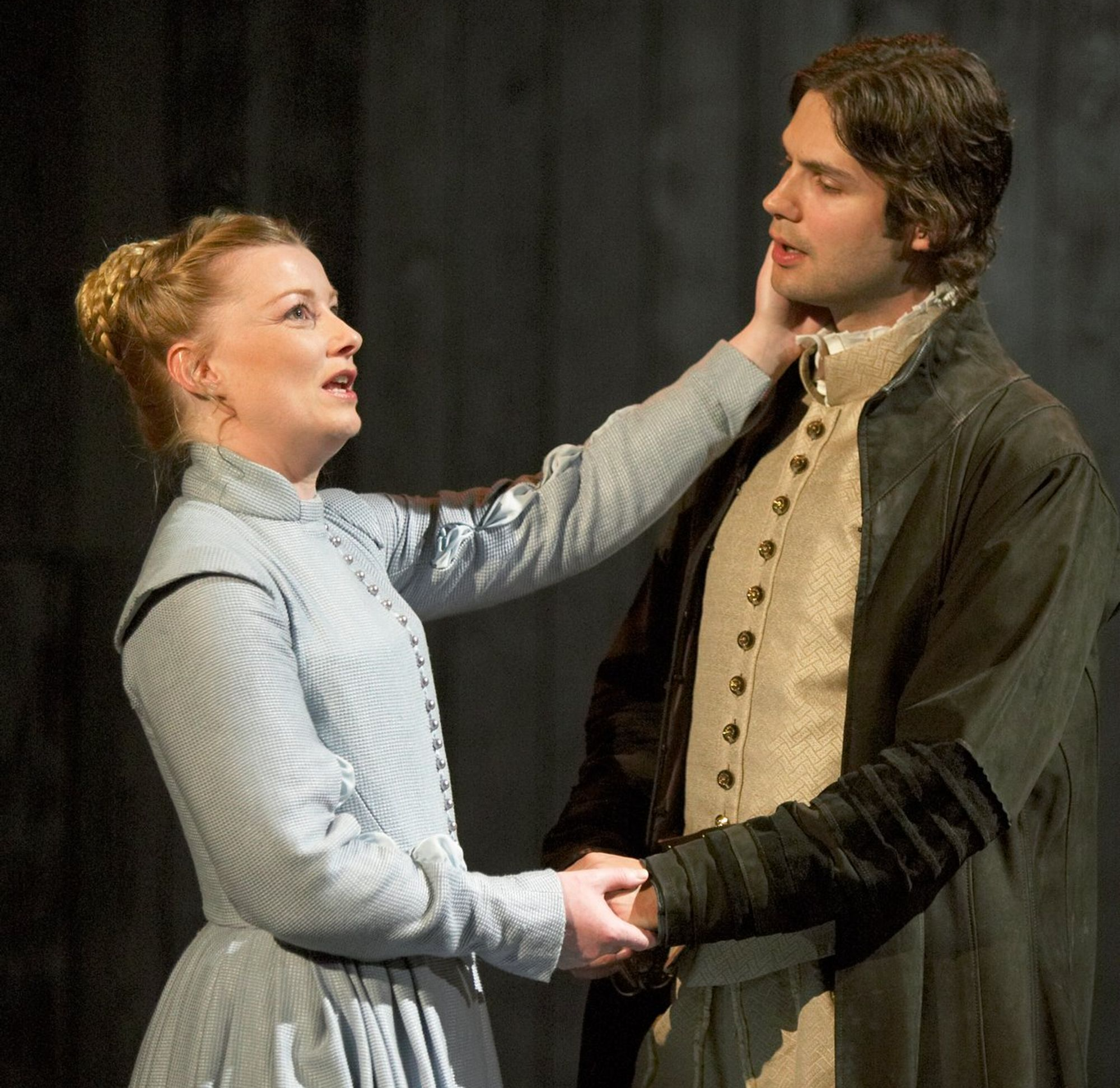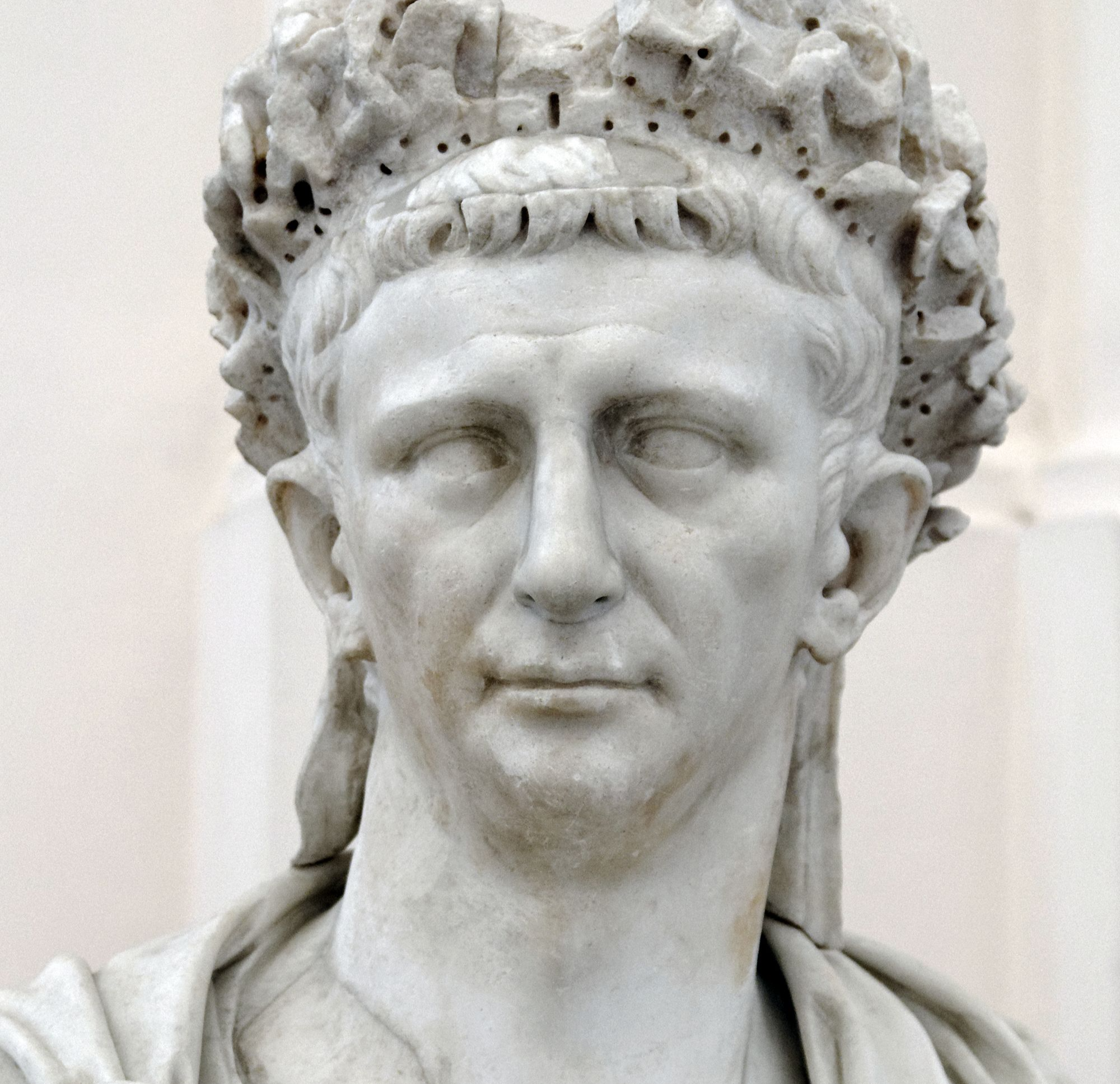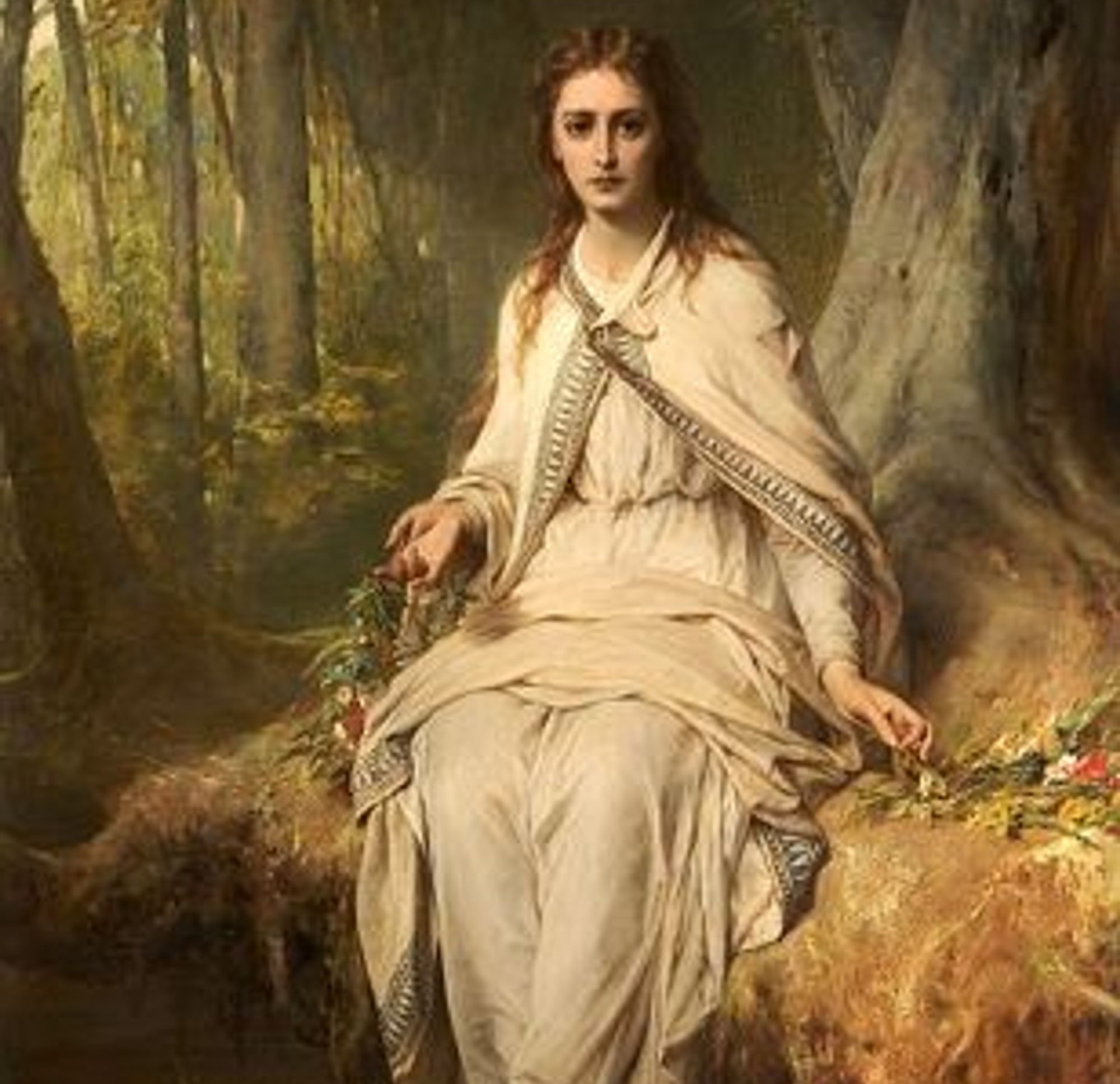Photo AI
Last Updated Sep 26, 2025
Character Analysis Simplified Revision Notes for A-Level Edexcel English Literature
Revision notes with simplified explanations to understand Character Analysis quickly and effectively.
267+ students studying
Character Analysis
Hamlet
Overview
Hamlet, the Prince of Denmark, is a deeply complex and introspective character. He is propelled by a quest for revenge against his uncle Claudius, who has not only murdered his father but also married his mother, Gertrude. Throughout the play, Hamlet wrestles with existential questions, moral dilemmas, and hesitations, making him a profound figure of philosophical depth and emotional turmoil.

Context
A character who fulfils Aristotle's definition is Oedipus (Sophocles 429 BC). He has the predominant elements of a classical tragic hero:
-
The character must be multifaceted along with their hamartia (a fatal flaw leading to the downfall of a tragic hero), hubris (pride/ambition/arrogance) and catharsis (release of emotions to heal from something).
-
Oedipus' multifaceted character emotionally bonds the audience; his fatal flaw forces the audience to empathize with him and his punishment evokes sympathy from the audience. He fulfils the three parameters that define the tragic hero.
-
Oedipus (Greek myth) is the king of Thebes who unwittingly killed his father and married his mother. Hamlet is a more complex character than Oedipus:
-
The recognition of truth is the climax in Greek tragedy, and it's made obvious for the audience to understand it.
-
Oedipus' recognition of the truth from the prophecies, he goes into shock (the climax) which leads to his isolation from the community.
-
In Hamlet, the audience (and the other characters) are never sure if the Ghost is the fallen King or just an evil spirit.
-
Hamlet's hamartia is his inability to act - he also takes five Acts to enact revenge. Therefore his recognition of the truth of Claudius killing his father, cannot be the climax, as then the play would be much shorter.
-
Hamlet and Oedipus are also related through Freud, and Hamlet/Oedipus both being in 'love' with their mothers. Similarities and differences between them.
-
Hamlet, depending on the interpretation, tends to elicit a lot less pity from the audience, than Oedipus does.
Key Moments in the Play
- Ghost's Revelation (Act 1, Scene 5): The ghost of Hamlet's father reveals the truth about his murder, urging Hamlet to avenge his death.
- "To be or not to be" Soliloquy (Act 3, Scene 1): Hamlet contemplates life, death, and the nature of existence, reflecting his deep philosophical concerns.
- The Play within a Play (Act 3, Scene 2): Hamlet stages a play to confirm Claudius's guilt, showcasing his cunning and strategic thinking.
- Confrontation with Gertrude (Act 3, Scene 4): Hamlet confronts his mother about her marriage to Claudius, revealing his inner turmoil and disgust.
- Final Duel and Death (Act 5, Scene 2): Hamlet's final confrontation with Laertes and Claudius leads to his death, fulfilling the tragic arc of revenge and justice.
Key Themes
- Revenge and Justice: Hamlet's quest for revenge against Claudius drives the plot, raising questions about morality, justice, and the consequences of vengeance.
- Madness: Hamlet's feigned madness and Ophelia's genuine descent into insanity highlight the thin line between sanity and madness. His erratic behaviour reflects his inner conflict and the burdens he carries.
- Existentialism and Philosophy: Hamlet's soliloquies delve into existential questions about life, death, and the human condition, revealing his philosophical depth and inner turmoil.
- Corruption and Decay: The motif of rot and decay symbolizes the moral and political corruption in Denmark. Hamlet frequently alludes to this decay, reflecting his disillusionment with the world around him.
- Family and Loyalty: The play examines familial relationships, loyalty, and betrayal, particularly through Hamlet's interactions with his mother, Gertrude, and his uncle, Claudius. These relationships significantly impact Hamlet's actions and his psychological state.
Key Quotes
"To be, or not to be: that is the question" (Act 3, Scene 1):
- This iconic soliloquy explores the nature of existence and the allure of death as an escape from suffering.
- Hamlet questions the value of life in the face of relentless suffering and contemplates the unknown of the afterlife, showcasing his profound existential dread.
"The play's the thing / Wherein I'll catch the conscience of the king" (Act 2, Scene 2):
- Hamlet reveals his plan to expose Claudius's guilt through the performance of a play.
- This quote underscores Hamlet's strategic mind and his use of theatre as a means to uncover truth and provoke guilt.
"Frailty, thy name is woman!" (Act 1, Scene 2):
- Hamlet expresses his disillusionment with his mother's quick remarriage, generalizing his disappointment to all women.
- This line highlights Hamlet's deep sense of betrayal and his complex views on gender and fidelity.
"O, that this too too solid flesh would melt, / Thaw, and resolve itself into a dew!" (Act 1, Scene 2):
- Hamlet's first soliloquy reveals his profound grief and desire to escape from his burdensome reality.
- It reflects his despair and wish for physical and emotional dissolution, indicating his suicidal thoughts.
"The rest is silence" (Act 5, Scene 2):
- Hamlet's final words underscore the play's tragic conclusion and the ultimate mystery of death.
- This line signifies Hamlet's acceptance of his fate and the cessation of his inner turmoil.
Claudius
Overview

Claudius, the new King of Denmark, is Hamlet's uncle and stepfather, having married Hamlet's mother, Gertrude, shortly after the death of his brother, King Hamlet. Claudius is the primary antagonist of the play, embodying themes of corruption, power, and moral decay. He is a complex villain, capable of both manipulative and politically astute actions as well as genuine moments of guilt and introspection.
Context
Cain and Abel's biblical story.
-
Killing of a brother. Elizabeth I's reign: 1558-1603
-
A national preoccupation was with the issue of succession after Elizabeth, even during her reign.
-
A quarter of Shakespeare's plays dealt with the issue of succession.
-
It was illegal at the time to speculate about Elizabeth's successor.
Key Moments in the Play
- Claudius's Coronation and Marriage (Act 1, Scene 2): Claudius addresses the court, announcing his marriage to Gertrude and attempting to assert his legitimacy as king.
- The Ghost's Revelation (Act 1, Scene 5): The ghost of King Hamlet reveals to Prince Hamlet that Claudius murdered him by pouring poison into his ear.
- The Play within a Play (Act 3, Scene 2): Claudius's reaction to the play, which re-enacts King Hamlet's murder, confirms his guilt.
- Prayer Scene (Act 3, Scene 3): Claudius attempts to pray for forgiveness for his sins but admits he is unable to truly repent, showcasing his internal conflict.
- Final Duel and Death (Act 5, Scene 2): Claudius's schemes culminate in a fatal duel between Hamlet and Laertes, during which Claudius is ultimately killed by Hamlet.
Key Themes
- Corruption and Decay: Claudius's ascent to the throne through murder sets the tone for the moral and political corruption in Denmark. His illegitimate rule is depicted as the "rotten" core of the state.
- Power and Ambition: Claudius's actions are driven by his ambition to gain and maintain power, showcasing the lengths he will go to secure his position.
- Guilt and Conscience: Despite his manipulative nature, Claudius experiences moments of guilt, particularly in his soliloquy during the prayer scene, revealing his awareness of his moral failings.
- Manipulation and Deception: Claudius is adept at political manoeuvring, using spies and manipulating others to achieve his ends, including Rosencrantz, Guildenstern, and Laertes.
Key Quotes
"But now my cousin Hamlet, and my son—" (Act 1, Scene 2)
- This line exemplifies Claudius's attempt to appear familial and legitimate, despite the underlying tension and Hamlet's disapproval.
- Claudius's use of familial terms is an attempt to normalize his actions and assert his new role, but it also highlights the strained and unnatural nature of his relationship with Hamlet.
"'Tis unmanly grief: / It shows a will most incorrect to heaven; / A heart unfortified, a mind impatient, / An understanding simple and unschooled" (Act 1, Scene 2)
- Claudius chastises Hamlet for his prolonged mourning, attempting to position himself as a rational and authoritative figure.
- This quote reflects Claudius's manipulative nature, as he seeks to undermine Hamlet's grief and assert control, masking his culpability in the previous king's death.
"Something have you heard / Of Hamlet's transformation; so call it, / Sith nor th'exterior nor the inward man / Resembles that it was" (Act 2, Scene 2)
- Claudius expresses concern over Hamlet's change in behaviour, setting in motion his plans to spy on him.
- Claudius's words reveal his suspicion and fear of Hamlet, demonstrating his awareness of the threat Hamlet poses to his rule.
"O, my offence is rank, it smells to heaven; / It hath the primal eldest curse upon 't, / A brother's murder" (Act 3, Scene 3)
- In his soliloquy, Claudius admits his guilt and acknowledges the gravity of his crime.
- This quote provides a rare glimpse into Claudius's conscience, showing that despite his actions, he is tormented by his guilt and aware of the damnation that awaits him.
"No place indeed should murder sanctuarize; / Revenge should have no bounds" (Act 4, Scene 7)
- Claudius encourages Laertes to take revenge on Hamlet, manipulating his grief and anger.
- This line underscores Claudius's ruthlessness and his willingness to exploit others' emotions to protect himself and eliminate threats to his power.
Gertrude
Overview
Gertrude is the Queen of Denmark, Hamlet's mother, and newly married to Claudius, the brother of her late husband, King Hamlet. Her marriage to Claudius shortly after her husband's death raises questions about her loyalty and morality. Throughout the play, Gertrude is depicted as a loving but morally ambiguous character who is often caught between her son and her new husband. Her actions and decisions significantly impact the play's events and themes.

Context
Heavily patriarchal society:
- Women were not allowed in theatre groups, men played women's roles.
- Further pushes the idea that women cannot speak their minds.
Key Moments in the Play
- Marriage to Claudius (Act 1, Scene 2): Gertrude's quick remarriage to Claudius following King Hamlet's death sets the stage for Hamlet's distrust and resentment.
- Confrontation with Hamlet (Act 3, Scene 4): Hamlet confronts Gertrude in her chamber, accusing her of betrayal and incest, which leads to Polonius's accidental death.
- Gertrude's Death (Act 5, Scene 2): Gertrude drinks poisoned wine intended for Hamlet and dies, her final act highlighting the tragic consequences of the court's corruption and deception.
Key Themes
- Family Relationships: Gertrude's role as a mother and wife is central to the play's exploration of familial loyalty and betrayal. Her relationships with Hamlet and Claudius drive much of the plot.
- Masculinity and Femininity: Gertrude's actions are often interpreted through the lens of gender roles and expectations in a patriarchal society. Her dependence on male figures and her limited agency reflect the societal constraints placed on women.
- Death: Gertrude's remarriage and eventual death are crucial to the play's themes of mortality and the consequences of actions taken to secure power and safety.
Key Quotes
"Frailty, thy name is woman!" (Act 1, Scene 2)
- Hamlet criticizes Gertrude for her quick remarriage to Claudius, reflecting his disappointment and anger towards her.
- This quote underscores Hamlet's view of Gertrude as weak and morally frail, encapsulating his feelings of betrayal and misogyny.
"Seek for thy noble father in the dust. / Thou knowest 'tis common; all that lives must die, / Passing through nature to eternity" (Act 1, Scene 2)
- Gertrude tries to console Hamlet, emphasizing the inevitability of death and the need to move on.
- This quote illustrates Gertrude's pragmatic approach to life and death, contrasting sharply with Hamlet's deep grief and philosophical outlook.
"O Hamlet, speak no more! / Thou turn'st mine eyes into my very soul, / And there I see such black and grained spots / As will not leave their tinct" (Act 3, Scene 4)
- Gertrude pleads with Hamlet to stop his accusations, revealing her inner guilt and turmoil.
- This moment exposes Gertrude's vulnerability and the impact of Hamlet's confrontation on her conscience, suggesting that she is not entirely unaware of the moral complexities of her actions.
"The lady doth protest too much, methinks" (Act 3, Scene 2)
- Gertrude comments on the Player Queen's vows of eternal fidelity, during the play-within-a-play.
- This line is often interpreted as Gertrude's unintentional self-reflection, highlighting the irony and her potential self-awareness about her situation and actions.
"The drink, the drink! I am poisoned." (Act 5, Scene 2)
- Gertrude's final words as she realizes she has drunk the poisoned wine intended for Hamlet.
- Her death serves as a tragic culmination of the deceit and corruption that pervades the Danish court, marking the final undoing of the royal family.
Horatio
Overview

Horatio is Hamlet's loyal and trusted friend, a scholar from Wittenberg, who provides a rational and steady presence throughout the play. Unlike other characters, Horatio remains largely untainted by the court's corruption and deceit. His steadfast loyalty and rational outlook make him a confidant to Hamlet and a crucial character in conveying the play's themes.
Context
Idea of a 'perfect friendship'. Lots of classical and biblical examples:
-
Achilles and Patroclus
-
David and Jonathon. Pure friendship was known as amicitia perfecta (a book by the Roman philosopher Cicero) which could only be experienced at a very high temperature.
-
All of the examples of perfect friends were men and men of rank.
-
Only the male frame was believed to be capable of withstanding the rigours of such powerful emotions.
-
Friendship was defined as something that existed in its ideal form between men of similar intellect, moral courage and ethical firmness. Political instability at the time when Shakespeare was writing:
-
Hamlet reflects the unstable political figure.
-
Horatio juxtaposes this image. Growing interest in humanism and rational thought which valued the study of classical literature and philosophy, as well as scientific inquiry.
-
Horatio is the representation of intellect within the play. Intellectual uncorrupted by emotion.
Key Moments in the Play
- Encounter with the Ghost (Act 1, Scene 1): Horatio is one of the first characters to see the ghost of King Hamlet and brings the news to Hamlet, setting the play's central revenge plot in motion.
- Support during the Play (Act 3, Scene 2): Horatio assists Hamlet in observing Claudius's reaction to the play that re-enacts King Hamlet's murder, providing crucial support and confirmation of Claudius's guilt.
- Final Scene and Hamlet's Death (Act 5, Scene 2): Horatio remains with Hamlet until the very end, attempting to drink the poisoned wine to die with him, but is stopped by Hamlet. He survives to tell Hamlet's story and ensure that the truth is known.
Key Themes
- Friendship and Loyalty: Horatio's unwavering loyalty to Hamlet is a central aspect of his character. His steadfastness contrasts with the betrayal and manipulation that pervade the Danish court.
- Rationality vs. Madness: As a scholar, Horatio represents reason and logic, providing a counterbalance to Hamlet's emotional and erratic behavior. His rational perspective helps ground the play in moments of chaos.
- Witness to Truth: Horatio serves as a reliable witness to the events of the play, ensuring that Hamlet's story is accurately told after his death. His role as a truth-bearer underscores the importance of integrity and honesty.
Key Quotes
"Thou art a scholar; speak to it, Horatio" (Act 1, Scene 1)
- Marcellus urges Horatio to speak to the ghost because of his scholarly background, highlighting Horatio's role as a rational and credible character.
- This quote establishes Horatio's authority and trustworthiness, setting him apart as a figure of reason amidst supernatural events.
"Give it an understanding but no tongue" (Act 1, Scene 2)
- Horatio advises Hamlet to listen to the ghost but not speak to it, showcasing his cautious and thoughtful nature.
- This advice reflects Horatio's prudence and his role as a stabilizing influence on Hamlet, emphasizing the importance of reason over impulsive action.
"This bodes some strange eruption to our state" (Act 1, Scene 1)
- Horatio comments on the ghost's appearance, foreshadowing the political and moral decay that will unfold.
- This quote highlights Horatio's insight into the larger implications of supernatural occurrences, linking them to the play's themes of corruption and disorder.
"Horatio, thou art e'en as just a man / As e'er my conversation coped withal" (Act 3, Scene 2)
- Hamlet expresses his deep admiration for Horatio, valuing his integrity and fairness.
- This moment underscores the depth of their friendship and Horatio's role as a moral compass for Hamlet, reinforcing his position as a paragon of virtue.
"I am more an antique Roman than a Dane. / Here's yet some liquor left" (Act 5, Scene 2)
- Horatio attempts to commit suicide to join Hamlet in death, revealing his profound loyalty and sense of honour.
- This quote exemplifies Horatio's devotion and the classical virtues he embodies, contrasting with the corruption of the Danish court and underscoring his role as a tragic witness to the events.
Ophelia
Overview
Ophelia is the daughter of Polonius, sister of Laertes, and Hamlet's love interest. She is one of only two female characters in the play. Ophelia is depicted as a gentle and obedient young woman who is deeply affected by the actions and decisions of the men around her. Her relationships with Hamlet and her father are central to her character arc, which ultimately leads to her descent into madness and tragic death.

Context
- For the Elizabethans, Ophelia's affliction was erotomania or love-madness.
- The first English book on hysteria was published in 1603 called The Suffocation of the Mother which suggests that virgins and widows are prone to hysteria caused by 'congestion' around the womb.
Key Moments in the Play
- Ophelia and Polonius (Act 1, Scene 3): Polonius instructs Ophelia to reject Hamlet's advances, showcasing her obedience and the controlling nature of her father.
- Hamlet's Madness (Act 3, Scene 1): Hamlet's harsh rejection of Ophelia during the "nunnery scene" profoundly impacts her mental state.
- Ophelia's Madness (Act 4, Scene 5): Following Polonius's death, Ophelia's behaviour becomes increasingly erratic, illustrating her descent into madness.
- Ophelia's Death (Act 4, Scene 7): Ophelia drowns in a stream, an event that is ambiguously described as either an accident or suicide, adding to the play's tragic elements.
Key Themes
- Masculinity vs. Femininity: Ophelia's character explores the roles and expectations of women in a patriarchal society. Her obedience and eventual madness highlight the limited agency and voice women had.
- Madness: Ophelia's genuine madness contrasts with Hamlet's feigned madness, illustrating the devastating impact of manipulation and grief.
- Death: Ophelia's death serves as a poignant commentary on the consequences of the political and familial conflicts that permeate the play.
- Religion: The ambiguous nature of Ophelia's death raises questions about religious beliefs regarding suicide and the afterlife.
Key Quotes
"I shall obey, my lord" (Act 1, Scene 3)
- Ophelia promises to follow her father Polonius's command to avoid Hamlet.
- This quote demonstrates Ophelia's submissive nature and the control exerted over her by male figures, setting the stage for her tragic fate.
"Get thee to a nunnery: why wouldst thou be a breeder of sinners?" (Act 3, Scene 1)
- Hamlet admonishes Ophelia, expressing his disillusionment with women and relationships.
- This interaction reflects Hamlet's deep-seated misogyny and Ophelia's vulnerability, furthering her emotional turmoil.
"Oh, what a noble mind is here o'erthrown!" (Act 3, Scene 1)
- Ophelia laments Hamlet's apparent descent into madness, mourning the loss of his noble qualities.
- This quote reveals Ophelia's love and admiration for Hamlet, as well as her distress over his transformation.
"There's rosemary, that's for remembrance; pray, love, remember: and there is pansies, that's for thoughts" (Act 4, Scene 5)
- In her madness, Ophelia distributes flowers with symbolic meanings to the members of the court.
- This scene illustrates Ophelia's fragmented state of mind and the symbolic nature of her actions, reflecting her grief and loss.
"Her clothes spread wide; / And, mermaid-like, awhile they bore her up: / Which time she chanted snatches of old tunes" (Act 4, Scene 7)
- Gertrude describes Ophelia's drowning poetically and ambiguously.
- The description of Ophelia's death blends beauty with tragedy, highlighting the play's themes of mortality and the intersection of innocence and corruption.
Polonius
Overview

Polonius is the Lord Chamberlain of Claudius's court and the father of Laertes and Ophelia. He is a verbose and meddling courtier whose primary concern is maintaining his status and favour within the royal court. Polonius's behaviour is characterized by his incessant scheming and spying, often using his children as pawns to achieve his goals. His actions and ultimately his death underscores the play's themes of deception, appearance versus reality, and the consequences of political manoeuvring.
Context
Niccoló Machiavelli, 1469-1527
- A Florentine statesman and political theorist.
- He taught that the acquisition and effective use of power may necessitate unethical methods not in themselves desirable. In Elizabethan and Jacobean dramas, Machiavellian villains and anti-heroes abound, appearing in many guises: politician, poisoner, atheist, and revenger.
Key Moments in the Play
- Advice to Laertes (Act 1, Scene 3): Polonius gives Laertes a series of maxims to follow while in France, revealing his concern for appearances and reputation.
- Spying on Hamlet and Ophelia (Act 2, Scene 1 and Act 3, Scene 1): Polonius uses Ophelia to gauge the cause of Hamlet's madness and later spies on Hamlet's interaction with Gertrude, highlighting his manipulative nature.
- Death behind the Arras (Act 3, Scene 4): Polonius hides behind a tapestry in Gertrude's chamber to eavesdrop on her conversation with Hamlet and is killed by Hamlet, who mistakes him for Claudius.
Key Themes
- Spying: Polonius's constant surveillance of Hamlet and others illustrates the theme of spying and its destructive consequences.
- Deception: Polonius embodies the deceit and manipulation prevalent in Claudius's court, often using pretences to gather information.
- Appearance vs. Reality: Polonius's actions and advice often emphasize the difference between how things appear and their true nature.
- Family Relationships: His interactions with Laertes and Ophelia reveal a paternal but controlling figure who prioritizes political gain over genuine care.
Key Quotes
"Give thy thoughts no tongue, / Nor any unproportioned thought his act." (Act 1, Scene 3)
- Polonius advises Laertes to be cautious in speech and action.
- This quote highlights Polonius's preoccupation with prudence and the importance of maintaining a good reputation.
"This above all: to thine own self be true." (Act 1, Scene 3)
- Polonius's advice to Laertes emphasizes self-honesty and integrity.
- Despite his duplicitous behaviour, Polonius offers this moralistic advice, illustrating his complex character.
"Brevity is the soul of wit." (Act 2, Scene 2)
- Polonius ironically praises conciseness while being notoriously long-winded.
- This quote underscores the theme of appearance versus reality, as Polonius often fails to practice what he preaches.
"Though this be madness, yet there is method isn't." (Act 2, Scene 2)
- Polonius comments on Hamlet's apparent madness, suggesting a hidden rationale.
- This quote reflects Polonius's analytical nature and his attempt to uncover the truth behind Hamlet's behaviour.
"O, I am slain!" (Act 3, Scene 4)
- Polonius's final words after being stabbed by Hamlet.
- His death is a direct result of his spying and meddling, emphasizing the fatal consequences of deceit and intrigue.
500K+ Students Use These Powerful Tools to Master Character Analysis For their A-Level Exams.
Enhance your understanding with flashcards, quizzes, and exams—designed to help you grasp key concepts, reinforce learning, and master any topic with confidence!
70 flashcards
Flashcards on Character Analysis
Revise key concepts with interactive flashcards.
Try English Literature Flashcards7 quizzes
Quizzes on Character Analysis
Test your knowledge with fun and engaging quizzes.
Try English Literature Quizzes29 questions
Exam questions on Character Analysis
Boost your confidence with real exam questions.
Try English Literature Questions27 exams created
Exam Builder on Character Analysis
Create custom exams across topics for better practice!
Try English Literature exam builder21 papers
Past Papers on Character Analysis
Practice past papers to reinforce exam experience.
Try English Literature Past PapersOther Revision Notes related to Character Analysis you should explore
Discover More Revision Notes Related to Character Analysis to Deepen Your Understanding and Improve Your Mastery
